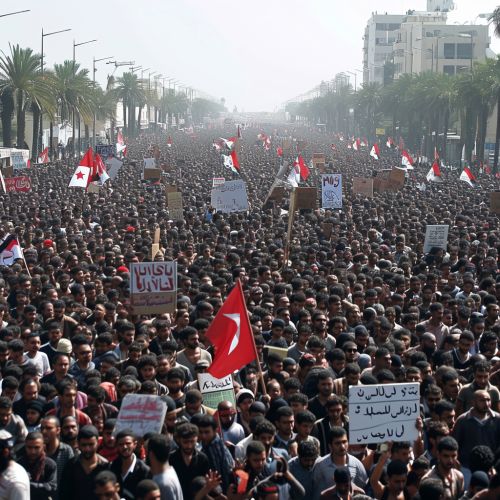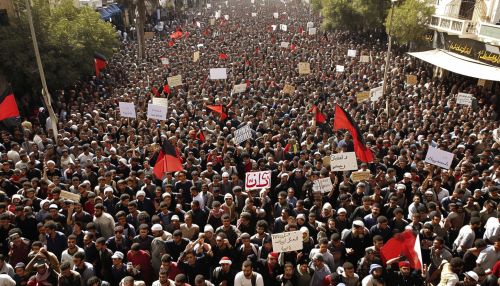Tunisian Revolution
Background
The Tunisian Revolution was a series of protests and political events that took place in Tunisia from December 2010 to January 2011. The revolution resulted in the ousting of long-time President Zine El Abidine Ben Ali and led to parliamentary and presidential elections. The events in Tunisia marked the start of a series of similar protests across the Middle East and North Africa, a phenomenon known as the Arab Spring.


Causes
The causes of the Tunisian Revolution are complex and varied. However, most analysts agree that a combination of political, economic, and social factors led to the uprising.
Political Factors
The political system in Tunisia under Ben Ali was characterized by a lack of political freedom, widespread corruption, and a strong police state. The Ben Ali regime was known for its censorship of the media, including the internet, and its suppression of political dissent. The lack of political freedoms and the widespread corruption in the government were major factors that led to the Tunisian Revolution.
Economic Factors
Economic factors also played a significant role in the Tunisian Revolution. Despite having a relatively high GDP per capita compared to other countries in the region, Tunisia suffered from high unemployment rates, particularly among young people and university graduates. The economic situation was further exacerbated by high inflation rates and the global economic crisis.
Social Factors
Social factors, including issues related to education, health, and gender equality, also contributed to the Tunisian Revolution. Despite having one of the best education systems in Africa and the Arab world, many Tunisians, particularly young people, were dissatisfied with the lack of opportunities available to them after graduation.
The Revolution
The Tunisian Revolution started in December 2010, when a young street vendor named Mohamed Bouazizi set himself on fire in protest of the confiscation of his wares and the harassment and humiliation that he reported was inflicted on him by a municipal official and her aides. His act became a catalyst for the Tunisian Revolution and the wider Arab Spring, inciting demonstrations and riots throughout Tunisia in protest of social and political issues in the country.
The protests were met with violent responses from the authorities, resulting in numerous deaths and injuries. Despite the violence, the protests continued and escalated, leading to the resignation of President Ben Ali in January 2011. Following Ben Ali's departure, a state of emergency was declared and a caretaker government was established.
Aftermath
The aftermath of the Tunisian Revolution saw a period of political transition, with free elections held for the first time in the country's history. The Ennahda Movement, a moderate Islamist party, won the largest number of seats in the Constituent Assembly in October 2011. The assembly was tasked with drafting a new constitution for Tunisia.
Despite the political changes, the economic situation in Tunisia remained difficult, with high unemployment rates and economic inequality persisting. The country also faced challenges in terms of security, with an increase in Islamist extremism and political violence.
Legacy
The Tunisian Revolution had a significant impact both domestically and internationally. Domestically, the revolution led to significant political changes, with a new constitution and free elections. Internationally, the Tunisian Revolution inspired a wave of protests across the Middle East and North Africa, known as the Arab Spring.
